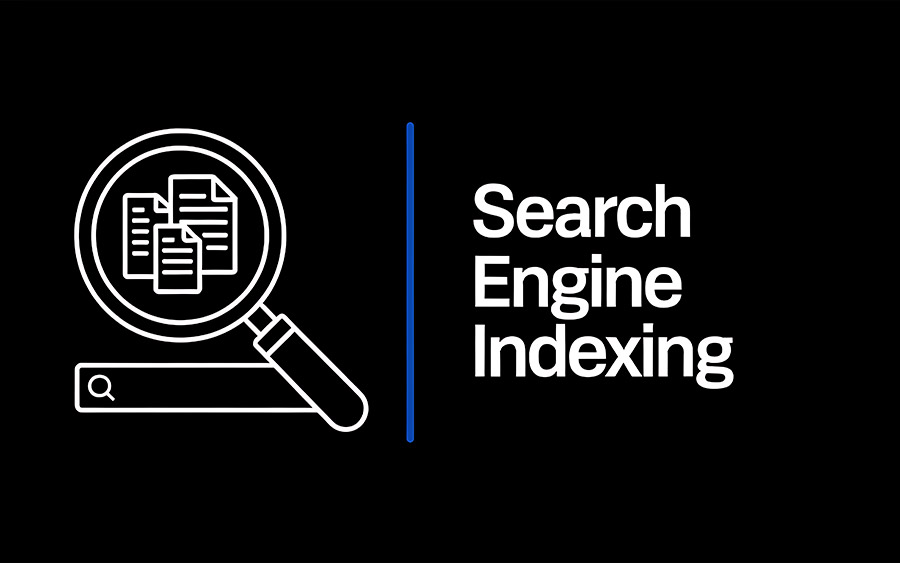INDEX in SEO: everything you need to know to optimize your strategy
You've heard of the INDEX function without really knowing what it's for? In this article, we explain why and how to use it effectively to optimize your SEO strategy. Follow the guide!

Understanding the role of the INDEX function in SEO can make all the difference.
While the NO INDEX tag is often used to prevent certain pages from being indexed, the INDEX tag plays a fundamental role in determining which pages are included in the search engine index.
Indexing is a key stage in SEO, and the INDEX function gives you precise control over this stage. It allows you to maximize the visibility of your important pages while retaining total control over the content to be indexed.
Ready to explore this essential mechanism for optimizing your SEO strategy? Follow the guide!
What is the INDEX function in SEO?
The INDEX function is a directive you assign to a web page to enable Google and other search engines to index it.
This means that :
- the page will be displayed in the search results,
- and that it will help improve your site’s positioning on relevant queries.
Unlike NO INDEX (which prevents indexing), INDEX makes your pages visible and accessible in search engine results.
By default, web pages are indexed by search engines, unless a directive prevents them from being so. The INDEX function is therefore fundamental to any successful SEO strategy.
A concrete example
If you have a key product page on your site, you want it to be indexed to appear in Google’s search results and generate traffic. That’s where INDEX comes in.
Why use INDEX in SEO?
- To optimize the referencing of strategic pages. Every indexed page can contribute to improving your site’s organic traffic. By ensuring that relevant pages (such as those containing important content or generating conversions) are indexed, you maximize your visibility in search engines. This can considerably strengthen your SEO strategy.
- To boost content visibility. If a page contains quality content, and you want that content to be seen by a wide audience, it’s crucial to allow Google to index it. By making these pages indexable, you ensure that they appear on relevant queries.
- To improve organic traffic. The aim of any website is to attract traffic. By indexing your strategic pages, you ensure that they are included in search engine results, thus increasing their conversion potential.
When NOT to use INDEX?
- Pages you don’t want to see. There are pages you don’t want indexed, such as test pages, temporary pages or sensitive information. It’s essential not to index these pages to prevent them from appearing in search results.
- Pages with redundant or obsolete content. Indexing pages with duplicate or outdated content can harm your overall SEO. These pages dilute the impact of your site and can negatively affect its ranking.
- Pages with little or no relevant content. Indexing pages with no relevant content or interest for users has a negative impact on your SEO. If a page offers nothing of value, it’s a good idea not to index it.
How do you implement INDEX on your site?
Via robots.txt file
By default, pages are indexed, but you can control this via the robots.txt file.
If you don’t want certain pages to be crawled, you can use the Allow directive to allow indexing or Disallow to prevent it.
Directly in HTML code
You can implement indexing via HTML code using the <meta name=”robots” content=”index”>.
This allows you to control precisely which pages are indexed.
From your CMS (WordPress, for example)
If you use a CMS like WordPress, you can easily manage the indexing of your pages with plugins like Yoast SEO or Rank Math.
These tools enable you to activate or deactivate indexing directly from the interface, without requiring any technical skills.
Is it possible to de-reference a page that has already been indexed?
Yes, you can remove a page from search results by using NO INDEX, but this doesn’t immediately remove it from the results.
You’ll have to wait for the search engines to update their indexes.
Does the INDEX function delete a page?
No, the INDEX function does not delete a page. It simply tells search engines to include it in their index.
To remove it, you need to consider deleting the content.
What's the difference between INDEX and NO FOLLOW?
INDEX allows the page to be included in the search engine index, while NO FOLLOW prevents search engines from tracking links on the page.
These two tags can be used together to refine control.
What you need to know about the index function in SEO
Managing indexing is more than simply allowing or disallowing a page to appear in search engine results. It must be part of an overall SEO strategy.
Certain pages, such as duplicate or poorly performing ones, can dilute your site’s authority and negatively affect its ranking. So it’s essential to decide carefully which pages to index and which to exclude.
Proper use of the INDEX function allows you to focus search engine effort on the pages that really matter, reinforcing the relevance and quality of your content in Google’s eyes.
At AntheDesign, we help you better understand and exploit SEO tools to maximize your site’s visibility. Need a hand optimizing your strategy? Contact us today!